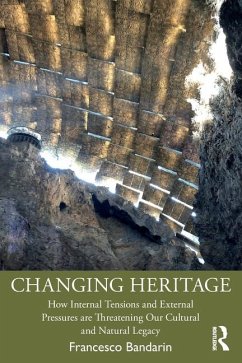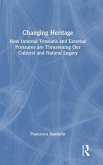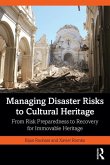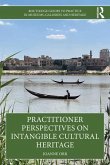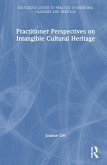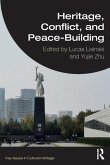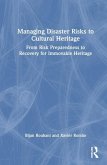Changing Heritage presents the most comprehensive analysis of heritage issues available today. Critically analysing the complexity of the current and forthcoming issues faced by heritage, it presents insightful directions for the future.
Drawing on the author's many years of experience working in senior positions at UNESCO, the book presents discussions of heritage sites all around the world. Today, our cultural and natural legacies face significant threats due to social and economic developments, political pressures, and unresolved historical issues. This book delves into these threats from two distinct perspectives: internal tensions and external pressures. The internal tensions include the disregard for human rights and gender equality; the increasing exploitation of heritage for political purposes; the development of post-colonial perspectives; and the necessity to reassess the established notion of "universal value." External pressures stem from global processes, unsustainable tourism, political conflicts, ethnic clashes, and religious strife that are causing destruction in numerous parts of the world. Examining the dynamics between heritage and these internal tensions and external pressures, Bandarin offers insights into the challenges faced and emphasises the imperative role of civil society in safeguarding the value of heritage for present and future generations.
Changing Heritage explores a wide range of issues surrounding the crisis in heritage management on an international level. It will be essential reading for heritage scholars, students, and professionals
Drawing on the author's many years of experience working in senior positions at UNESCO, the book presents discussions of heritage sites all around the world. Today, our cultural and natural legacies face significant threats due to social and economic developments, political pressures, and unresolved historical issues. This book delves into these threats from two distinct perspectives: internal tensions and external pressures. The internal tensions include the disregard for human rights and gender equality; the increasing exploitation of heritage for political purposes; the development of post-colonial perspectives; and the necessity to reassess the established notion of "universal value." External pressures stem from global processes, unsustainable tourism, political conflicts, ethnic clashes, and religious strife that are causing destruction in numerous parts of the world. Examining the dynamics between heritage and these internal tensions and external pressures, Bandarin offers insights into the challenges faced and emphasises the imperative role of civil society in safeguarding the value of heritage for present and future generations.
Changing Heritage explores a wide range of issues surrounding the crisis in heritage management on an international level. It will be essential reading for heritage scholars, students, and professionals

